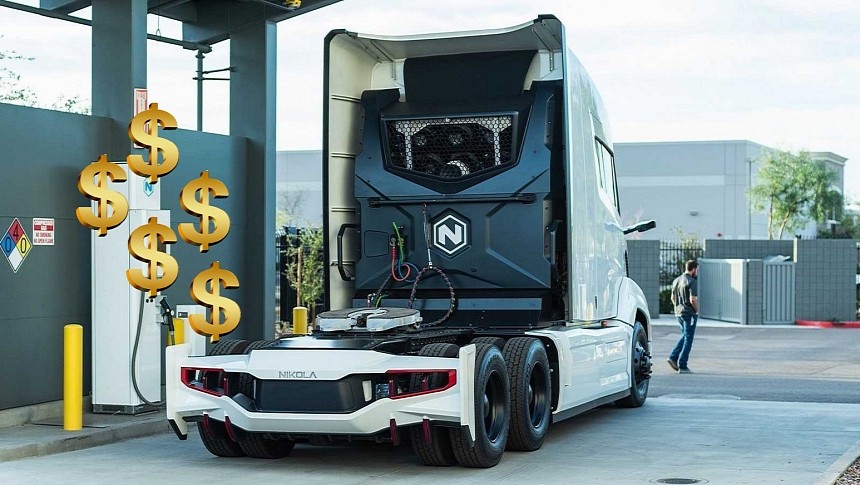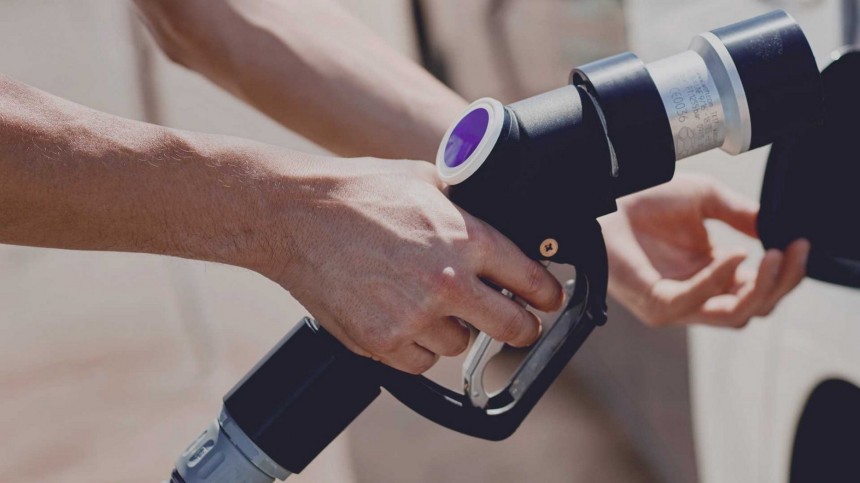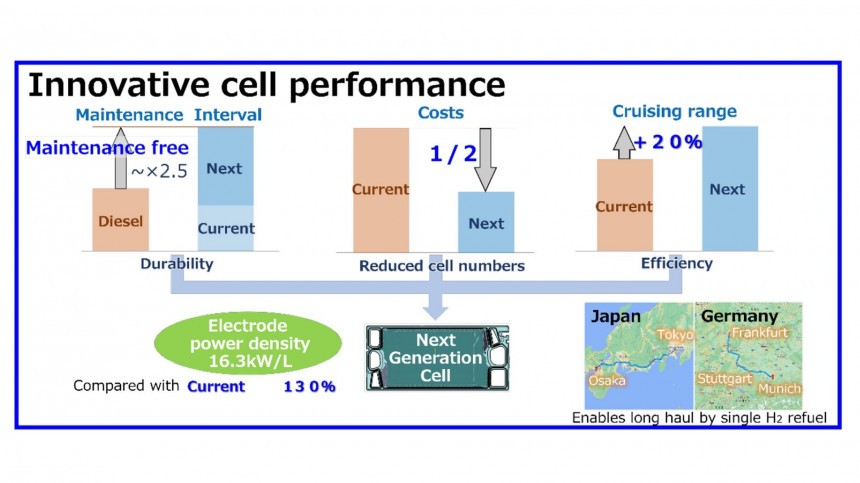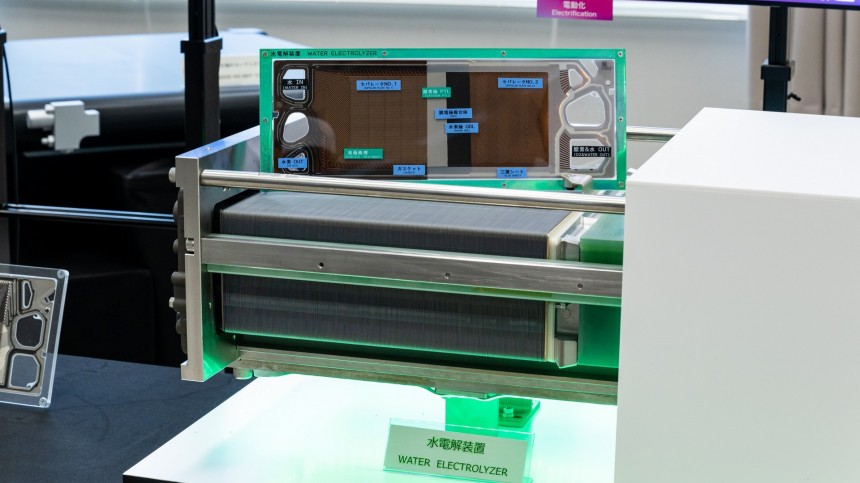The truck market is fascinating in the sense that it takes no nonsense: cost is king. That said, people are still trying to propose a feasible carbon-neutral alternative to diesel trucks. Electric semis do not seem to be a solution. Their battery packs will rapidly degrade with fast charging, this process takes a long time, and they are much heavier than other trucks, which restricts their cargo capacities. According to Alexander Vlaskamp, fuel cell trucks do not make the cut either because of hydrogen prices.
The MAN CEO told the Austrian newspaper Der Standard that "hydrogen is far too expensive, almost four to five times what it would be interesting for our customers to use it. Therefore, hydrogen will only be used in a small segment in Europe, such as for special transport." This would be the reason for MAN to bet on buses and trucks with battery packs. A bit more context may help explain that.
MAN belongs to the Volkswagen Group, which is betting everything on battery electric vehicles (BEVs). Vlaskamp even said that this technology "is mature and most efficient." Although the second part is true, the first is a lot more controversial. The debates regarding range, thermal runaway risks, battery pack swapping, and new cell technologies show nothing is set in stone for BEVs, even if automakers such as Tesla and Volkswagen would love us all to believe this is the case.
That said, any executive from the German automaker that said anything against BEVs and in favor of fuel cells would have to fear getting the pink slip. On the other hand, they would also avoid stating anything that would be easy to deny or which had no factual confirmation. That said, hydrogen prices must really be high, which makes the cost per mile of transportation more expensive than it should be. If the transportation expenses are higher, so are the prices of the products that need to be transported.
Anyone trying to manufacture and sell hydrogen fuel cell vehicles will have to worry about two things: maintenance costs and refueling expenses. Toyota knows that and already announced its Hydrogen Factory to address the situation. Summing its plans up, it will present a fuel cell that will only demand repairs much later than a diesel engine would – in 2.5 times what an ICE truck requires. However, the larger maintenance-free interval would not help if hydrogen prices were as high as Vlaskamp stated they currently are. Toyota is working to bring that down with hydrogen production.
On June 26, the Japanese automaker announced its first pieces of equipment to make green hydrogen from chicken manure and food waste would be installed in Thailand in November 2023. The hydrogen will be extracted from biogas coming from these renewable sources. Toyota will also make green hydrogen with renewable energy and electrolysis but will use fuel cell technology to do that. The Japanese automaker did not clarify in which way fuel cells can help electrolysis be more efficient.
Supposing Toyota, Nikola, and other companies that want to promote hydrogen use succeed, the MAN CEO may have to review the company's plans due to the more competitive operating costs. Meanwhile, Vlaskamp recognizes he will have a lot of work with the company's battery electric trucks. As he pointed out, it will be a challenge to use them as refrigerated trucks or garbage trucks. They need energy respectively to keep the storage chamber cold and to compact trash, which will significantly reduce their ranges.
Another challenge will be to fast charge these trucks and buses. European truck drivers have to stop for 45 minutes each four hours for safety reasons. That would be the ideal moment to recharge their trucks, but the battery packs in these machines are much larger than those in BEVs, which already take around 30 minutes to fast charge. Another hurdle is that fast charging does not take place all the way until 100% capacity but only until 80%. That's a measure to save time and preserve the battery pack. The resulting shorter range adds to other difficulties a truck powered by batteries could face, such as cold weather and steep terrain with long climbs.
Vlaskamp estimates that Europe will need "over 20,000 stations along trunk roads and motorways by 2030 in order to carry out around 30 percent of logistics transport electrically." Remember, they will not be stations for BEVs: they will have to be designed specifically for trucks, which "will cost several billion euros." The MAN CEO will also have to find a way to make these electric trucks cheaper. In his words, "e-trucks are significantly more expensive to buy than today's diesel vehicles." His argument is that "they are far cheaper" to operate, which is only accurate, while the battery pack does not have to be replaced. Try to see if anyone repeats that story that they will last as much as the truck, as they do with BEVs: no one would dare to say that, at least with the current cell technology.
MAN belongs to the Volkswagen Group, which is betting everything on battery electric vehicles (BEVs). Vlaskamp even said that this technology "is mature and most efficient." Although the second part is true, the first is a lot more controversial. The debates regarding range, thermal runaway risks, battery pack swapping, and new cell technologies show nothing is set in stone for BEVs, even if automakers such as Tesla and Volkswagen would love us all to believe this is the case.
Anyone trying to manufacture and sell hydrogen fuel cell vehicles will have to worry about two things: maintenance costs and refueling expenses. Toyota knows that and already announced its Hydrogen Factory to address the situation. Summing its plans up, it will present a fuel cell that will only demand repairs much later than a diesel engine would – in 2.5 times what an ICE truck requires. However, the larger maintenance-free interval would not help if hydrogen prices were as high as Vlaskamp stated they currently are. Toyota is working to bring that down with hydrogen production.
Supposing Toyota, Nikola, and other companies that want to promote hydrogen use succeed, the MAN CEO may have to review the company's plans due to the more competitive operating costs. Meanwhile, Vlaskamp recognizes he will have a lot of work with the company's battery electric trucks. As he pointed out, it will be a challenge to use them as refrigerated trucks or garbage trucks. They need energy respectively to keep the storage chamber cold and to compact trash, which will significantly reduce their ranges.
Vlaskamp estimates that Europe will need "over 20,000 stations along trunk roads and motorways by 2030 in order to carry out around 30 percent of logistics transport electrically." Remember, they will not be stations for BEVs: they will have to be designed specifically for trucks, which "will cost several billion euros." The MAN CEO will also have to find a way to make these electric trucks cheaper. In his words, "e-trucks are significantly more expensive to buy than today's diesel vehicles." His argument is that "they are far cheaper" to operate, which is only accurate, while the battery pack does not have to be replaced. Try to see if anyone repeats that story that they will last as much as the truck, as they do with BEVs: no one would dare to say that, at least with the current cell technology.















































